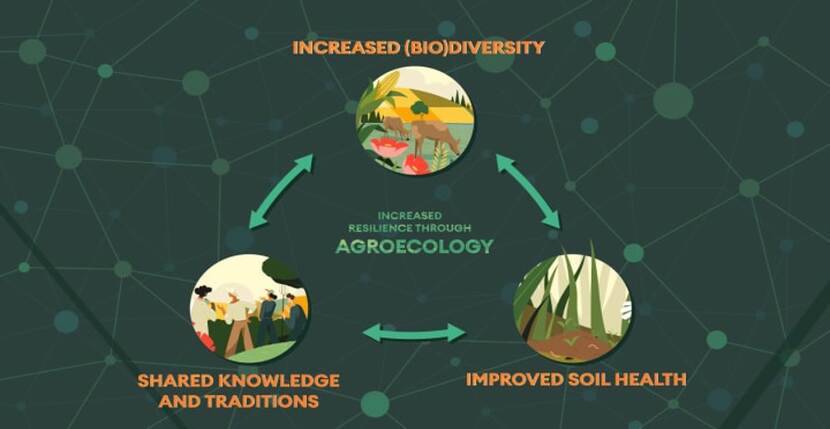16 Oct Canada wants a resilient and equitable food system
Nature-inclusive agriculture is gaining popularity among Canadian farmers. By combining indigenous agriculture with new innovative methods, they can reduce their environmental impact and improve the resilience of their farms. Unfortunately, that is not as simple as it seems. More research, education, and policy support are needed as well as continued discussions with relevant stakeholders, such as Wageningen University & Research (WUR).
Nature-inclusive practices offer several benefits to farmers. If implemented correctly, it supports biodiversity and resilience on farms (serve as a natural pest control), which in turn helps farmers to cope with environmental challenges, such as extreme weather and disease. Integrated pest management and rotational grazing can lead to decreased reliance on synthetic inputs, thus reducing input costs. And shifting focus from the production side to individual, nature-inclusive practices helps strengthen the health of farmers and their quality of life.
Indigenous agroecology
Indigenous communities in Canada, including First Nations, Inuit, and Métis peoples, are particularly well-equipped to practice nature-inclusive agriculture, as they have a sound understanding of local ecosystems, weather patterns and plant behavior. They are known for their methods of agroecology, using traditional land management techniques such as rotational grazing and intercropping. They also prioritize the preservation and revitalization of traditional crops and seed varieties that are adapted to their specific environment. These methods promote biodiversity, soil health, and natural pest control, which in turn reduce the need for chemical inputs.
By combining these traditional methods with modern, innovative approaches, Canadian farmers not only reduce their environmental impact but also improve the resilience of their farms in the face of a changing climate. Unfortunately, that may not be as simple as it seems. For example, adopting nature-inclusive practices may require non-indigenous farmers to acquire new knowledge and skills related to ecosystem dynamics and soil health management. Second, small-scale farmers may have limited access to capital, thus limiting the availability of resources. Third, given that the adoption of nature-inclusive practices is not a turnkey solution simply due to the number of variables at play, farmers may face challenges when navigating regulations, permits, and other relevant policy frameworks.

Climate-smart solutions
Fortunately, the Canadian government recognizes the importance of sustainable agriculture practices and has taken steps to provide funding via an array of programs, initiatives, and grants geared towards providing the support necessary to implement said practices.
Read more here.

Sorry, the comment form is closed at this time.